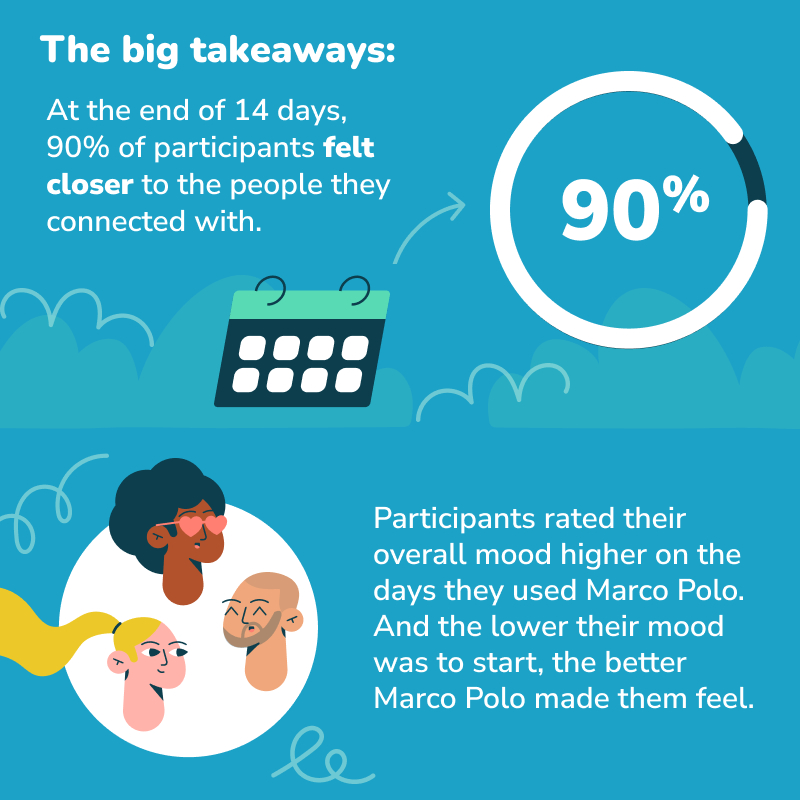Happiness research: The Marco Polo effect

It was happiness research that sparked the creation of Marco Polo because it showed us that close relationships are a key to happiness. It was happiness research that gave us our purpose – helping people feel close. And it is happiness research that will ensure we stay true to that purpose every day of our existence.
Staying true to that purpose is what drives us. So we continually ask big questions. How does our technology impact the people who use it? Is the experience of using Marco Polo true to our commitment to build technology that considers our well being? Answering those questions, and responding to our community’s needs based on what we learn, are fundamental to who we are as a company.
So for 14 days last winter, we asked 100 people to trade Marco Polo for all other forms of digital communication. Then we asked them how they felt.
The short answer was that using Marco Polo helped people feel closer and happier. It’s a finding as galvanizing as it is gratifying.
Deeper exploration of the happiness study
This independent study was built on a smaller study conducted in 2020. This time, curious about whether the original results would hold up with a bigger sampling, we followed along as 100 participants, pairs who were not romantic partners, used Marco Polo to communicate with each other for two weeks.

Where do we go from here?
Learning that Marco Polo has a positive effect on people’s lives isn’t cause to rest on our laurels. It’s a benchmark, a reminder, as we evolve and innovate, of the importance of continually checking in with our community and responding to what they value about Marco Polo and what they need from the app.
And, we’re committing to repeating this study regularly as studies like this help us understand how we continue to deliver on our purpose to our community.